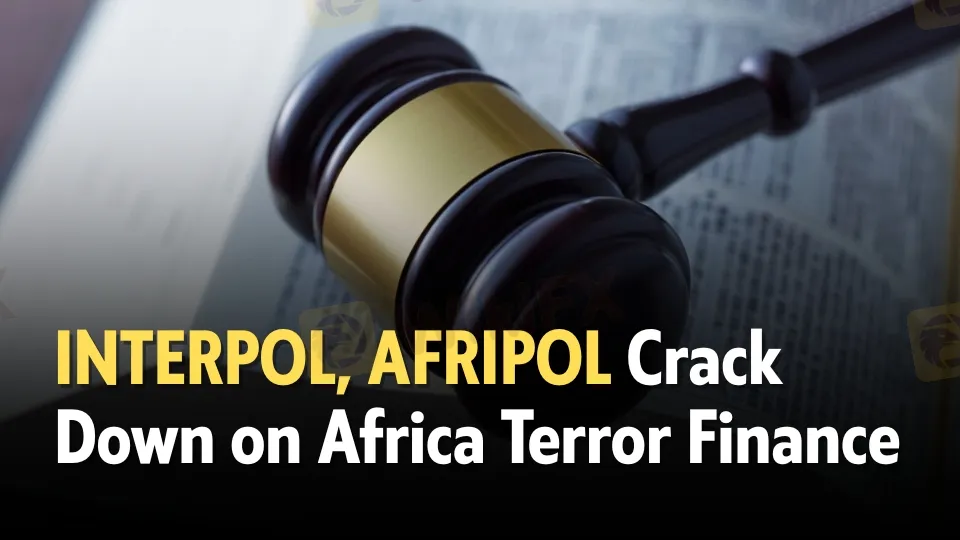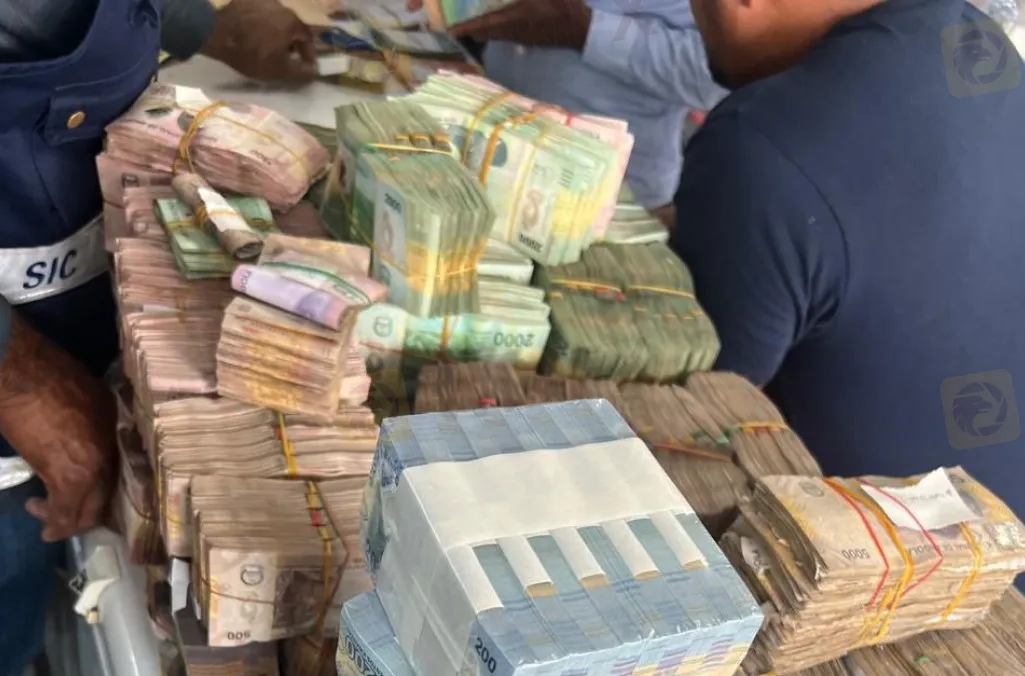Robinhood’s Bold Bet: Tokenized Stocks That Trade 24/7
Robinhood is reinventing stock trading with tokenized, 24/7 equities on the blockchain—ending settlement delays and redefining how markets move.
简体中文
繁體中文
English
Pусский
日本語
ภาษาไทย
Tiếng Việt
Bahasa Indonesia
Español
हिन्दी
Filippiiniläinen
Français
Deutsch
Português
Türkçe
한국어
العربية
Abstract:83 arrests and $260M uncovered in INTERPOL-AFRIPOL’s Africa terror financing crackdown under Operation Catalyst 2025.

LYON, France — A large-scale counter-terrorism financing effort across Africa has led to 83 arrests and the exposure of $260 million in suspicious transactions, marking a major success for INTERPOL and AFRIPOL under Operation Catalyst.
Conducted between July and September 2025, the operation targeted money laundering, cyber-enabled fraud, and the illicit use of virtual assets tied to terrorist networks. Authorities from six African nations coordinated closely, screening more than 15,000 entities and individuals.
Of those arrested, 21 face terrorism-related charges, while 28 were apprehended for financial fraud and money laundering. Investigators also discovered 16 cases linked to online scams and 18 tied to illegal virtual asset transactions. Nearly $600,000 has already been seized, with further recoveries expected as inquiries continue.
INTERPOL Secretary General Valdecy Urquiza hailed the unprecedented collaboration, saying the coordinated approach between counter-terrorism, financial crime, and cyber units represented “a breakthrough in disrupting the financial lifelines of terrorist operations.”

The operation underscored a growing challenge for African law enforcement: the merging of terrorism financing with digital and financial fraud. Criminal activities such as Ponzi schemes, crypto scams, and illicit trade increasingly serve as gateways for terrorism funding.
AFRIPOL Executive Director Ambassador Jalel Chelba highlighted the power of shared intelligence in confronting cross-border threats. “When national units converge on a single goal, Africas law enforcement shows its capacity to deliver effective, sustained responses to terrorism financing,” he said.
The campaign received key strategic support from private-sector data partners, including Binance, Moody‘s, and Uppsala Security, which collaborated with INTERPOL’s cyber intelligence teams to trace crypto-linked money trails.
Investigators detailed several prominent cases from the operation:
A particularly significant discovery involved a sprawling cryptocurrency Ponzi scheme that defrauded victims across 17 countries and generated losses exceeding $562 million. Certain wallets tied to the scam were discovered to have connections to terrorism financing activities.
INTERPOL has also issued a Red Notice for a suspect believed to be behind a separate $5 million crypto fraud case, structured to disguise fund origins and channel resources into terror-linked operations.
Operation Catalyst represents a pivotal milestone in global cooperation against terrorism financing, reinforcing the necessity for intelligence-sharing and digital forensics in modern law enforcement.

Disclaimer:
The views in this article only represent the author's personal views, and do not constitute investment advice on this platform. This platform does not guarantee the accuracy, completeness and timeliness of the information in the article, and will not be liable for any loss caused by the use of or reliance on the information in the article.

Robinhood is reinventing stock trading with tokenized, 24/7 equities on the blockchain—ending settlement delays and redefining how markets move.

STARTRADER partners with Porsche Carrera Cup Middle East for 2025/26, aligning trading precision with elite racing across six Gulf rounds. Explore exec quotes, regulatory insights, and branding strategy.

Trade Nation completes TD365 integration, unifying its brand and platforms under one global identity to enhance user experience and streamline trading operations.

INFINOX secures UAE CMA Category 5 license, expanding its regulated presence in the Middle East with a focus on transparency and strategic growth.
